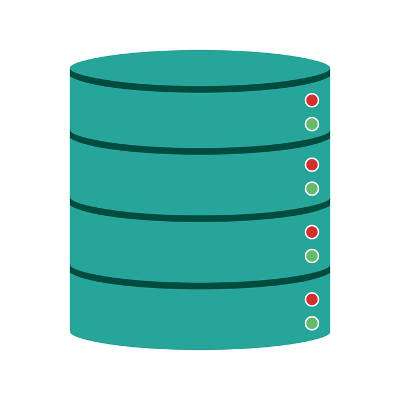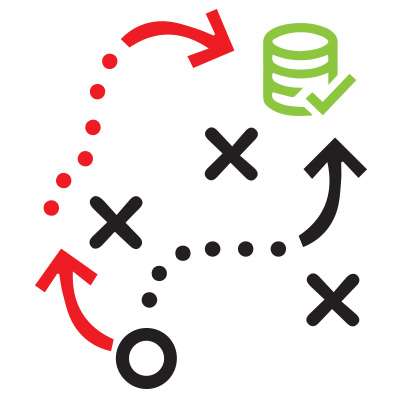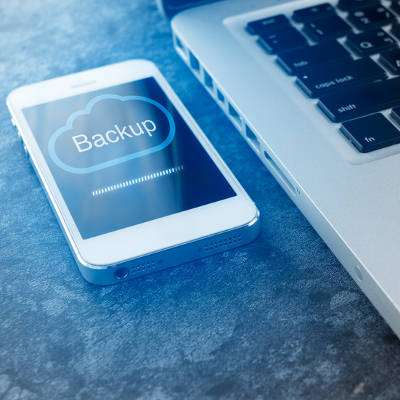Obviously, your business is going to be extremely limited without its data. There are dozens of antivirus solutions on the market for this very reason. One of the best ways to protect your digital assets is to back up data utilizing a reliable backup platform. Listed below are a few basic considerations to make if you want a data backup that you can trust.
Macro Systems Blog
If you have been running a business for any length of time, you don’t need to be told how imperative risk management is. One problem you see from business owners today is that while they comprehend just how many problems there are (and which ones they need to find solutions for first), they want to grow their business fast, and as a result, they overlook potential problems and end up hurting their business as a result.
There are many backup strategies; some are attractive for their affordability, some for their comprehensiveness, but regardless of the strategy you utilize, it will need to fit the kind of work that you do. Some businesses need to make considerations for the amount of data that is created, and what would happen if it were lost. This is where an operational backup strategy comes into play.
In business, having contingency plans for potential issues tends to be advantageous for the business that wants to fend off catastrophe. When you are dealing with information technology (specifically data), ensuring that it is protected against loss in the face of the variety of threats out there is an undertaking in itself. A disaster recovery strategy governs the processes a business develops to recover to restore operations in a manner that will keep the business in business. Below is a look at two of the core variables of a disaster recovery strategy: RPO and RTO.
Some terms are thrown around as if everyone knows what they are; this is especially the case with IT and technology solutions. Maybe it’s a result of them being around for quite some time in professional environments, but it doesn’t help those who are not familiar with the technology. One term that we should all know is “firewall,” as it’s omnipresent in the business sector, but it’s far from the only security solution you’ll need to guarantee safety.
It’s not usually the big bad hackers that pose the biggest risk to your organization's continued survival. Most of the time it’s simple problems that create a world of issues for your business. One usual way that an otherwise sound business plan could be disrupted is via an unexpected disaster derailing operations without having an adequate data backup solution in place.
Data backup is one of the most imperative aspects of maintaining a business, but it’s not something that some businesses even consider until it’s too late to reverse the damage done. In any case, data backup is a vital part of any successful business, but it’s not as simple as implementing a solution and praying it works. Let's go through the proper steps for making sure your business has a successful data backup solution when it’s needed most.
Data backup is a vital component for businesses; damage control is required by just about any organization that has day-to-day interactions in risky environments like the Internet. Moreover, some companies are located in high-risk areas where natural disasters are a considerable threat. Regardless, there is one situation where all businesses need to be wary about data security: user error. Our point is that it doesn’t matter where your business is located or what industry it’s in; there will always be situations where data backup will be helpful, so consider how it must be implemented now before it’s too late.
All companies need to take preventative measures to secure their futures, but were you aware that data backup isn’t just about making sure your company survives in the event of a disaster? While natural disasters, user error, and other means of data loss can all be reduced through the development of a substantial data backup plan, your business will find use for your backup even during normal everyday operations, providing a considerable return on your investment.
Data backup usually carries with it the association that your company could end at any moment, and while this is an imperative reason to implement data backup, there are many others to consider as well. You might find that they are just as critical to your business as saving it from a crippling data loss disaster.
Your organization needs to have data backup and disaster recovery; there is no exception to this rule. Your business is risking far too much by not implementing data backup and disaster recovery. Below we will review situations in which a company may find its data endangered, as well as how modern businesses can keep their data secure.
Your organization is running smoothly... a disaster happens. Whether this disaster is caused by an act of God, a hacker, or one of your own employees, you must be ready. Let's take a look at several statistics that show you just how imperative having a well strategized data backup and disaster recovery plan is.
As the cloud is being used by more people and businesses to meet their computing requirements, more critical data is hosted outside of local computer networks. As a result, individuals use cloud storage for their backup and recovery strategies. In fact, it has become the primary use of cloud-hosted platforms, but just how does backup and recovery from these collaborative cloud-based platforms work?
With the numerous threats out there that can harm your business, it’s more important than ever before to think about what your business is doing to protect its data; and, by extension, its future. Depending on the current data backup solution your business utilizes, it might be time to consider a change for the better.
If you don’t recognize the worst-case scenario when constructing your organization's disaster recovery strategy, you’ll inevitably suffer from it when it disaster strikes. Taking into account all of these nuances is one of the key ways your business can prepare for such an event. All of these instances need to be considered when implementing your business continuity plan. Let's examine this below.
How does your organization leverage data backup? Depending on the way your organization functions and your particular needs, your data backup solution will vary from others in your industry. Still, one thing is absolutely undeniable: your business can’t afford to not utilize some type of data backup system.
Business continuity planning is something every organization needs to practice; around the corner there is always some type of disaster, data-related or otherwise. Could your company survive a significant failure in your infrastructure? Could your company survive the building you work in burning down? Could your company survive a criminal stealing equipment? If your company has a business continuity plan, it's possible the company could survive all of the above scenarios.























